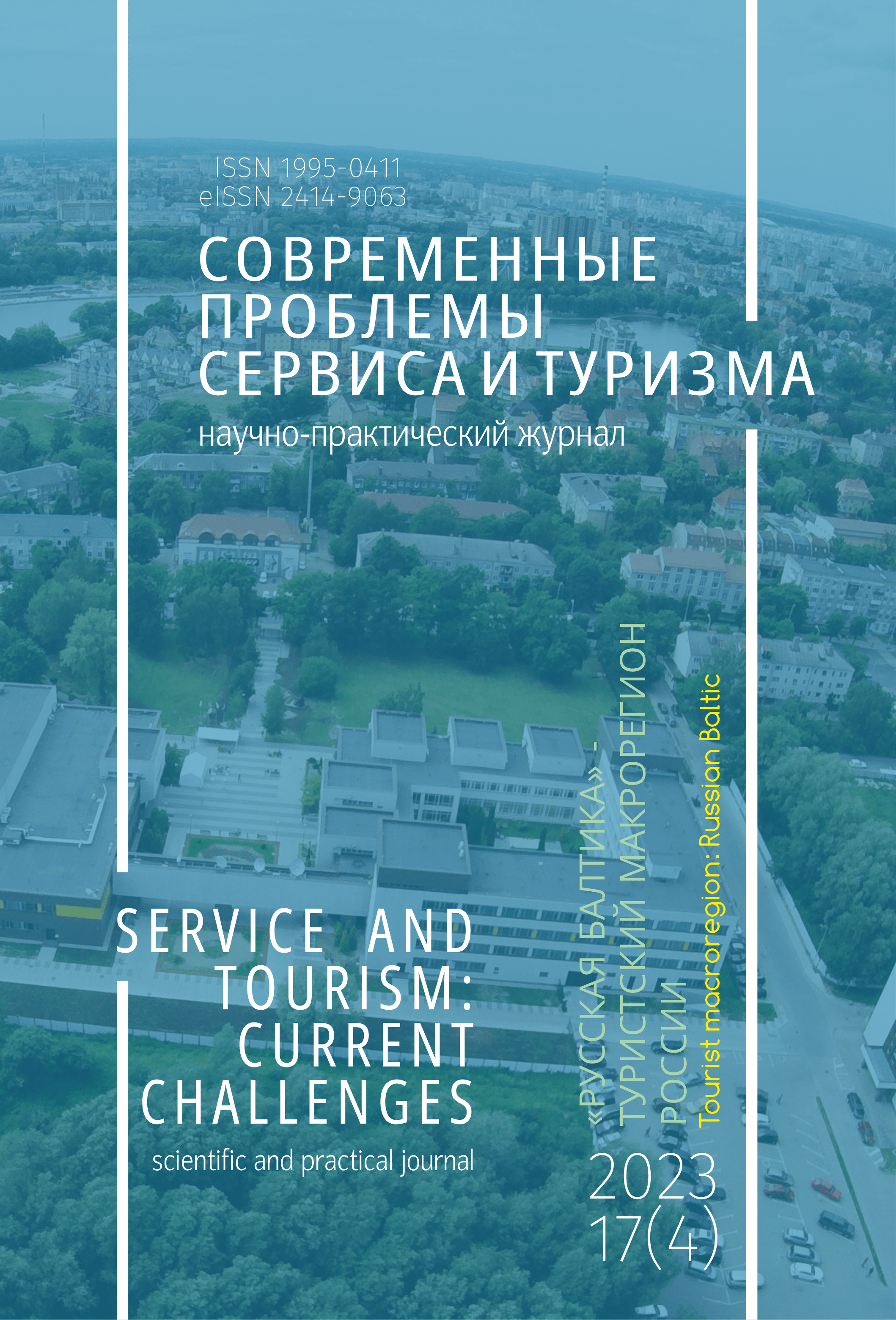Problems of forming competitive personnel for tourism and hospitality enterprises
DOI:
https://doi.org/10.5281/zenodo.10382264Keywords:
human resources potential of the enterprise, tourism and hospitality, competitiveness of tourism and hospitality enterprisesAbstract
Dynamically and sharply changing environment forces the enterprises to search the way to be successful through developing not only the material and technical base, but also their employees directly. Thus, enterprises form their competitive human resources potential. This is especially important for service spheres of economy, such as hotel business, restaurant service and tourism industry. This issue is relevant in the light of the latest trends in the labor market: natural ageing of the population, reducing of work capacity due to COVID-19, insufficient earnings motivation for qualified specialists at service enterprises lead to the decline in the working-age population. It is not uncommon for university graduates in entry-level positions to receive lower remuneration than unskilled workers employed, for example, in delivery and online services. The professional community of the hospitality sector (represented by the Council for Professional Qualifications in Hospitality) together with educational organizations at various levels (universities, colleges, vocational schools, etc.) has been searching of relevant and effective measures to match the requirements of the industry and the capabilities of educational organizations for the last ten years. The sectoral qualifications framework, which correlates the education levels and requirements for skills and labour functions, can become such an instrument of compliance.
Downloads
References
Берглезова Т. В. Понятие кадрового потенциала и его влияние на эффективность деятельности промышленного предприятия // Проблемы предпринимательства в экономике России. 2005. Вып.8. // URL: https://www.cfin.ru/bandurin/article/sbrn08/07.shtml (Дата обращения: 14.10.2023).
Дусенко С.В., Беломестнова М.Е. Инновационные направления в системе подготовки кадров для индустрии туризма и гостеприимства: отечественный опыт и европейская практика: Монография. М.: Русайнс, 2022. 150 с.
Духанина Л.Н., Семенова Л.В., Ушанов Ю.В. Независимая оценка профессиональной квалификации: новые вызовы реальности: Монография. М., 2020. 130 с.
Кондратенко Е.С. Воспроизводство кадрового потенциала в отраслях, непосредственно воздействующих на формирование работника: Дис. … канд. экон. наук. М., 2012. 193 с.
Профессиональное образование: методология, технологии, опыт внедрения: Монография / Е.Н. Трофимов, В.А. Жидких, Н.Н. Лагусева и др.; под ред. Н.Н. Лагусевой. М.: Университетская книга, 2022. 234 с.
Семенова Л.В. Развитие практикоориентированного обучения: исследование индустрии гостеприимства // Научный результат. Технологии бизнеса и сервиса. 2020. Т.6. №2. С. 78-86. DOI: 10.18413/2408-9346-2020-6-2-0-7.
Цветкова И.И., Сиволап А.В. Кадровый потенциал как элемент образовательного потенциала предприятия // Экономика и управление. 2007. №6. С. 106-110.
Chung K.Y. Hotel management curriculum reform based on required competencies of hotel employees and career success in hotel industry // Department of Hotel and Tourism Management. 1999. Pp. 473-487.
European Centre for the Development of Vocational Training. European Training Foundation, United Nations Educational, Scientific and Cultural Organization, and UNESCO Institute for Lifelong Learning, 2019.
Global inventory of regional and national qualifications frameworks (2019). Vol.1: Thematic chapters: Ensuring the quality of certification in vocational education and training. Luxembourg: Publications Office of the European Union.
Font X., Buckley R. Tourism Ecolabelling: Certification and Promotion of Sustainable Management. Australia: CABI, 2015. 359 p.
Ritchie J.R.B. Design and development of tourism: Hospitality management curriculum // Tourism Recreation Research. 1995. Vol.20. Iss.2. Рp. 7-13.
Zaitseva N.A., Larionova A.A., Yumatov K.V. et al. The role of human resource capacity to ensure the competitiveness of the cross-border cooperation projects in the tourism and hospitality industry // International electronic journal of mathematics education. 2016. Vol.11. Iss.7. Pр. 1961-1970.
Downloads
Published
How to Cite
Issue
Section
License
Copyright (c) 2023 Semenova, L. V.

This work is licensed under a Creative Commons Attribution-NonCommercial-ShareAlike 4.0 International License.














